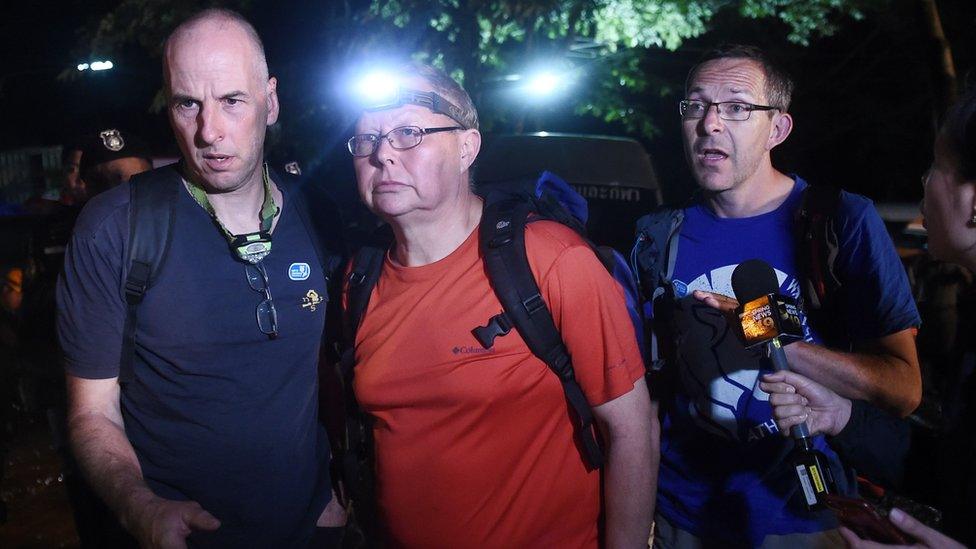Thailand cave: Hope grows for a daring rescue of trapped boys
- Published
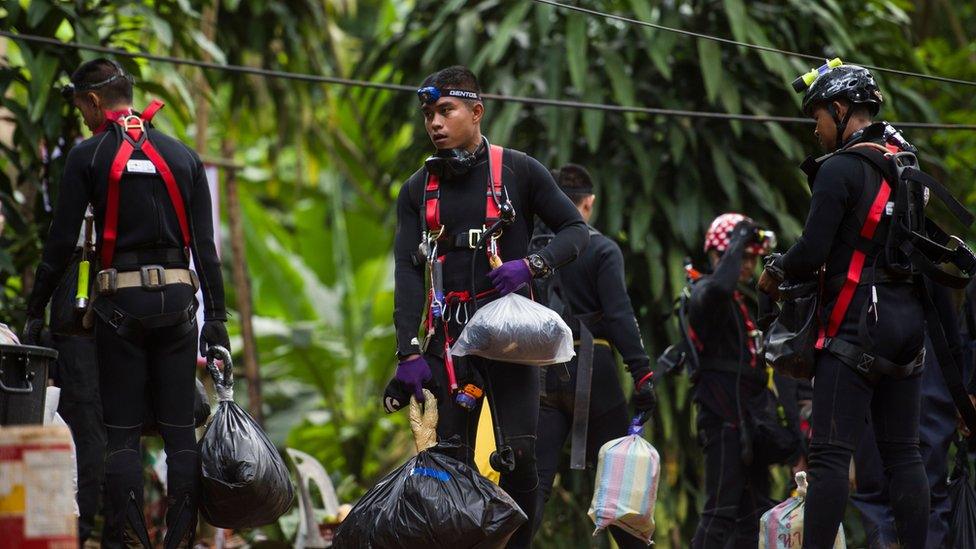
Thai divers carry supplies as officials prepare for a daring rescue
In the bleak hours when there was no news of the missing boys, a new community emerged on the side of this mountain.
Divers, cavers, and soldiers all trudged purposefully through the thick mud, focused on their own small role in what felt like a national effort.
Now that the 12 boys and their football coach have been located, the mood in the camp has transformed. It is a place of hope, energy, and purpose.
Yo Sato is 27. He grew up in east London but returned to Thailand to teach English. He drove for hours to get here to offer his service as a translator for the local police.
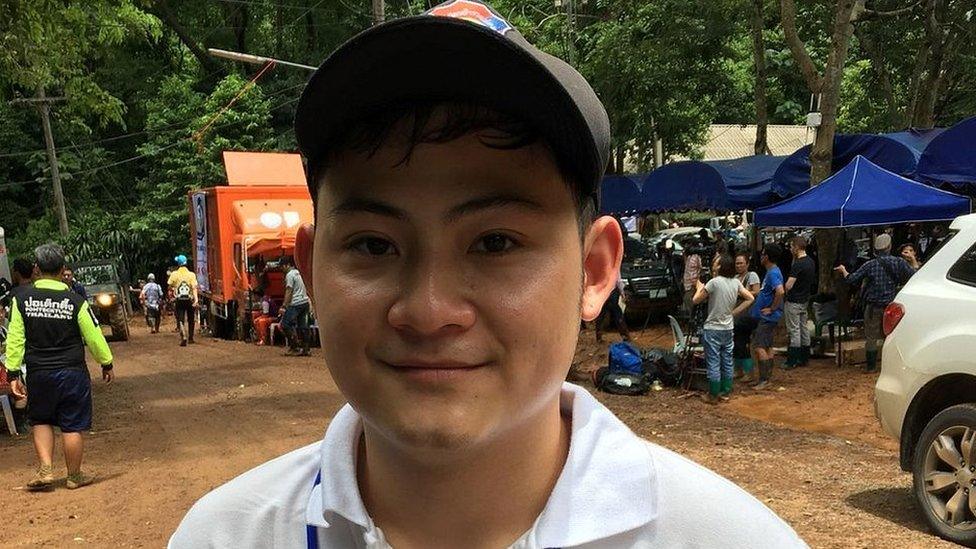
Yo Sato is acting as a translator for the police
"I'm speechless, I've got goose-bumps right now," he says.
"Seeing those kids alive just changes people's mood. People are working so hard, it's so tiring. But now, they are all smiling. And seeing the British and the Thai working together, it's just the best thing ever."
Classmates of the young footballers come to the mouth of the cave to show their support. At the spot where their friends last glimpsed the outside world, they sing for them.
"Believe in God. Only belief can move a mountain," go the lyrics of the song they sing.
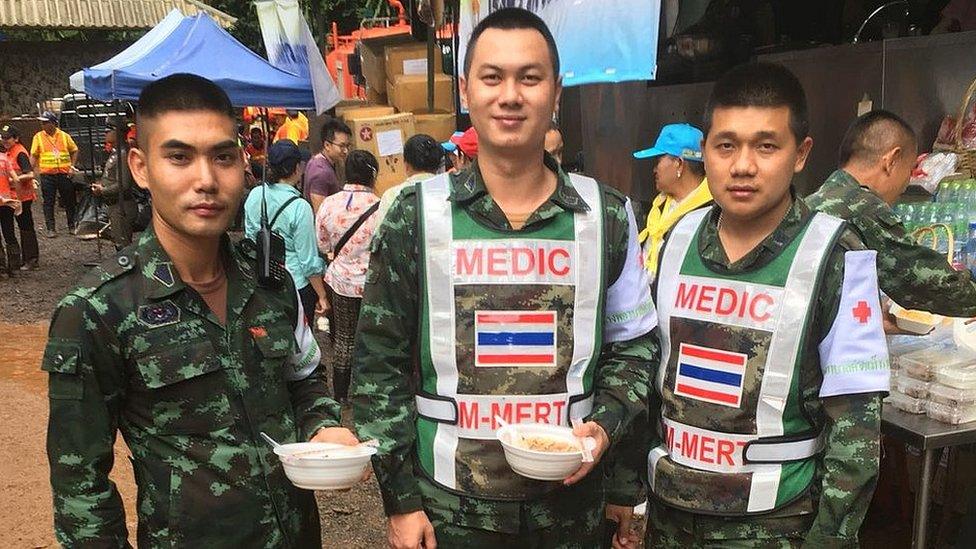
Emergency teams are preparing to help bring the boys to safety
Looking on, just a few metres away, are the rescue teams, planning how they can enter this particular mountain and bring the boys to safety.
Everywhere you turn, small squadrons of men and women in matching colours huddle and nod in agreement. They are surrounded on every side by scores of international news teams who have filled this corner of a usually tranquil forest.
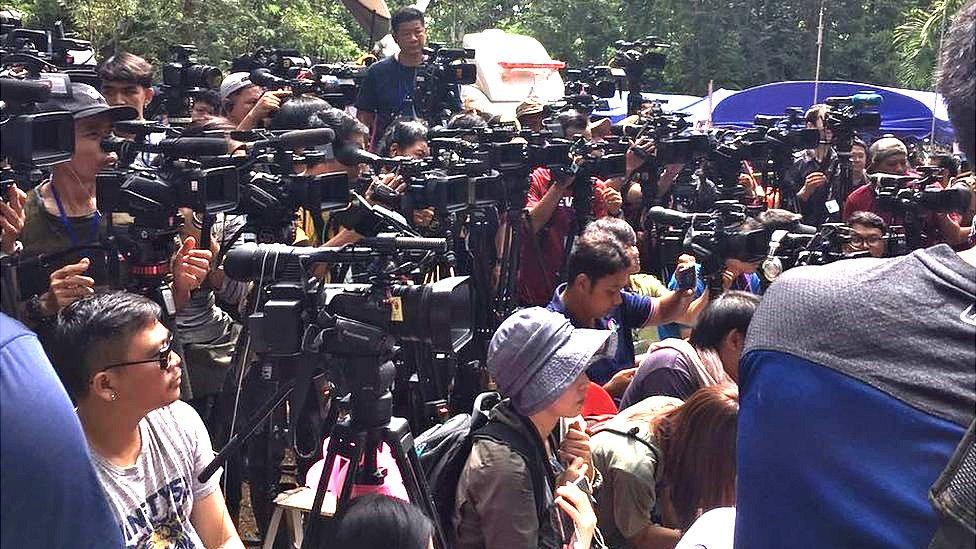
The rescue effort is creating headlines round the world
It is the Thai Navy Seals the journalists want to talk to the most. Videos of the boys posted to Facebook by the Seals have delighted and amazed people at the camp.
There are other, regular soldiers too who don't get the same star treatment. But you feel their presence. Every now and then they emerge from their makeshift barracks and stand arm in arm, in a human chain.
Their role is to block the media's path when heavy machinery is brought in, or when the medical teams are rehearsing for final stages of a rescue. They can be seen carrying empty stretchers out from the entrance to the cave and placed in ambulances which speed off into the distance.
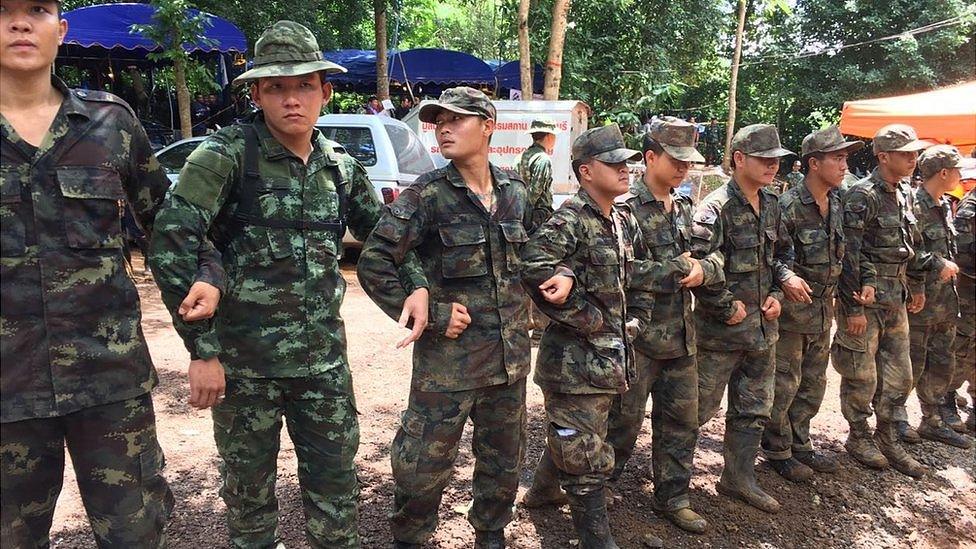
Thai soldiers are helping to maintain order outside the cave
It is still not clear when the soldiers will be called upon for real. Until that time, an army of volunteers needs to be fed.
Servers in yellow uniforms scoop steaming rice and fish curry on to plates for a never-ending queue of hungry workers. In fact, there is a wide choice and favourite dining spots are emerging. Workmen drenched in sweat and cave water lurk optimistically to see if the next fresh batch of chicken is ready.
And the most popular woman in Thailand appears to be the one who loudly declares the ice-creams have arrived.
Among the servers is Lakhana Didyasarin, the director of the American School of Bangkok. "I have brownies, cookies and hotdogs," she says.

Lakhana Didyasarin says she has faith that the boys will be brought out safely
In fact, she brought 1,600 hotdogs, and they are all gone. It was her duty as a Thai to come and help, she says, and it was a "dream came true" when the boys were found.
"We have found them now," she says. "The second stage will be much easier. We have doctors, nurses, experts - every person needed to help them out."
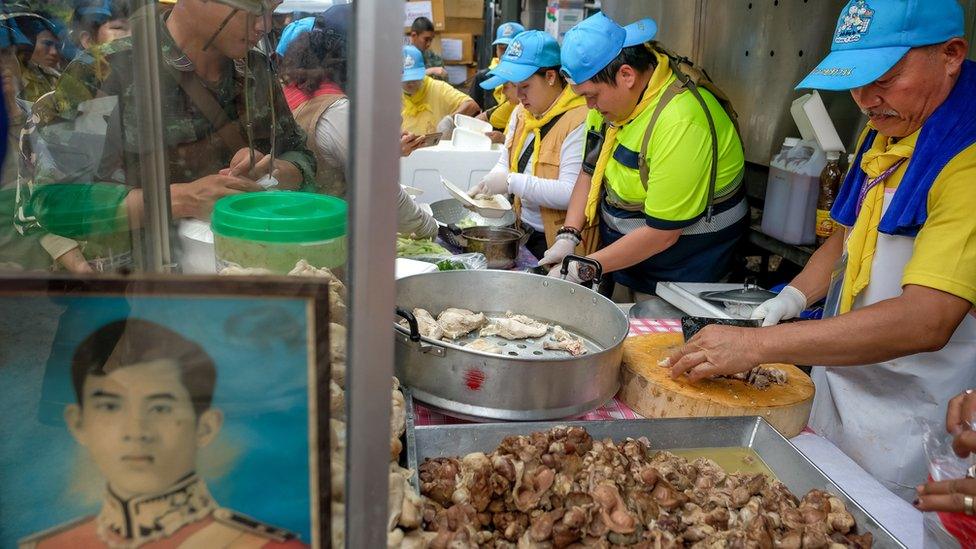
Volunteers prepare chicken rice for rescuers
Like so many here, she says she is going nowhere. This unlikely army - professional and amateur - won't leave until the boys are safe.
So this remarkable mountainside community, born in such bleak hours, continues to grow, and the sound of children singing drifts across the forest.
- Published18 July 2018
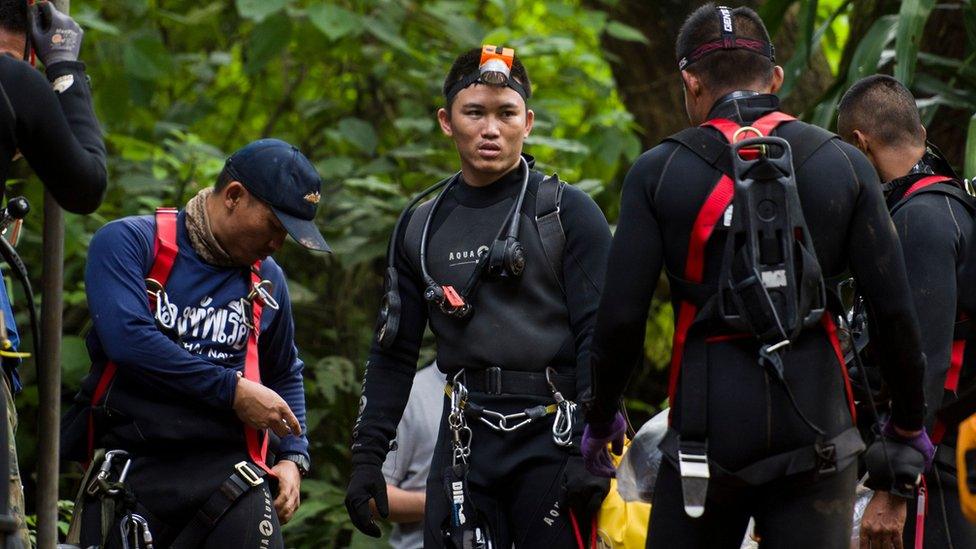
- Published4 July 2018
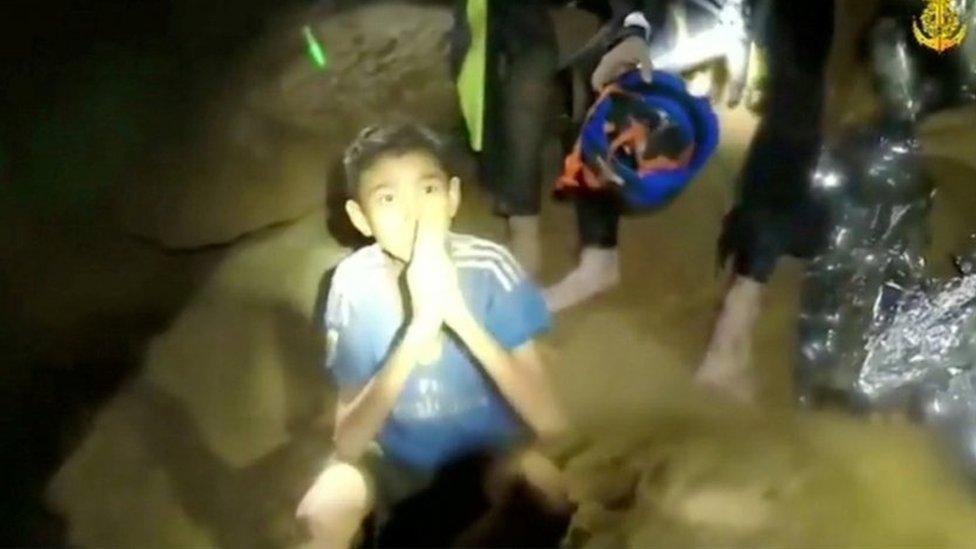
- Published3 July 2018
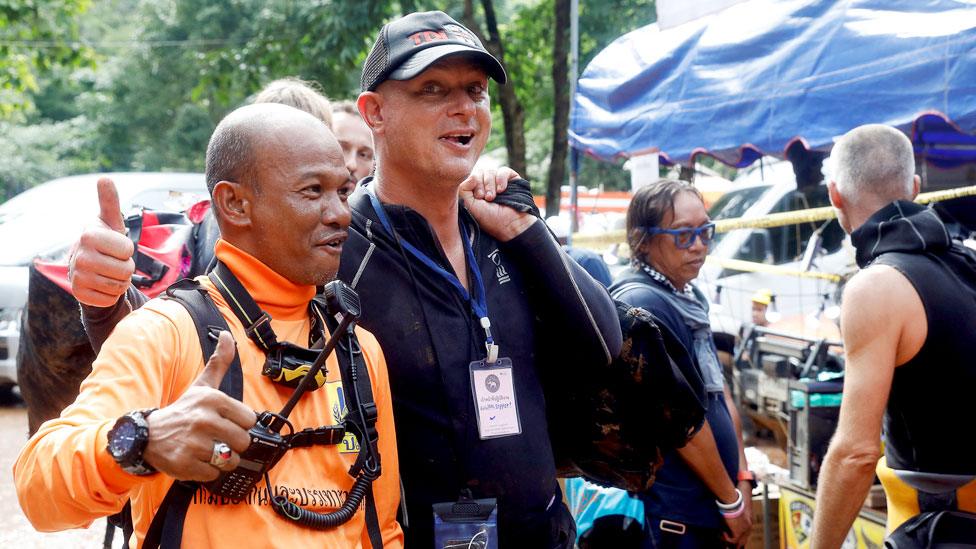
- Published3 July 2018
